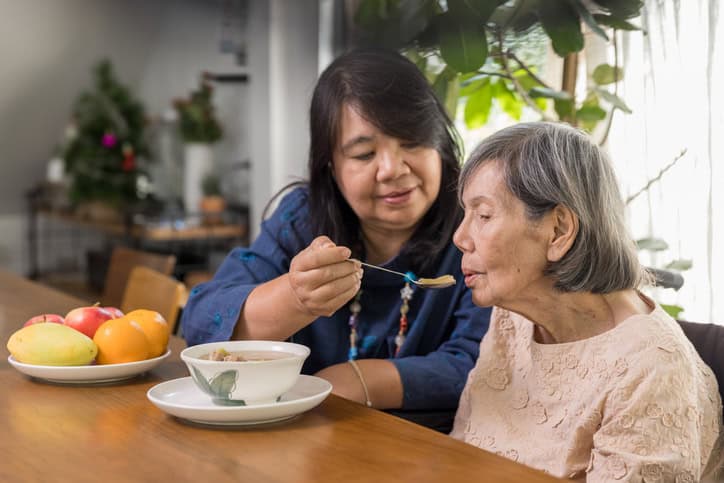
You recently discovered a lump in your breast, and now your worst fears have been confirmed. It’s never easy receiving difficult news – and a breast cancer diagnosis can often stop life in its tracks.
According to the Breast Cancer Foundation Malaysia, breast cancer is the most common cancer among Malaysian women, with about 1 in 19 women at risk. For many women, this journey can feel overwhelming or even isolating – but in truth, it is a path that you don’t have to walk alone.
In honour of Breast Cancer Awareness Month this October, we speak to Dr Harjit Kaur Perdamen, a Consultant Breast and Endocrine Surgeon from Prince Court Medical Centre, and Eunice Chan Xiou Zhi from the National Cancer Society Malaysia (NCSM), about what to expect after a breast cancer diagnosis, and how families can lend support to those on this journey.
What Happens After a Breast Cancer Diagnosis?
Dr Harjit Kaur Perdamen shares about the cancer journey and key questions patients should be asking their doctors.
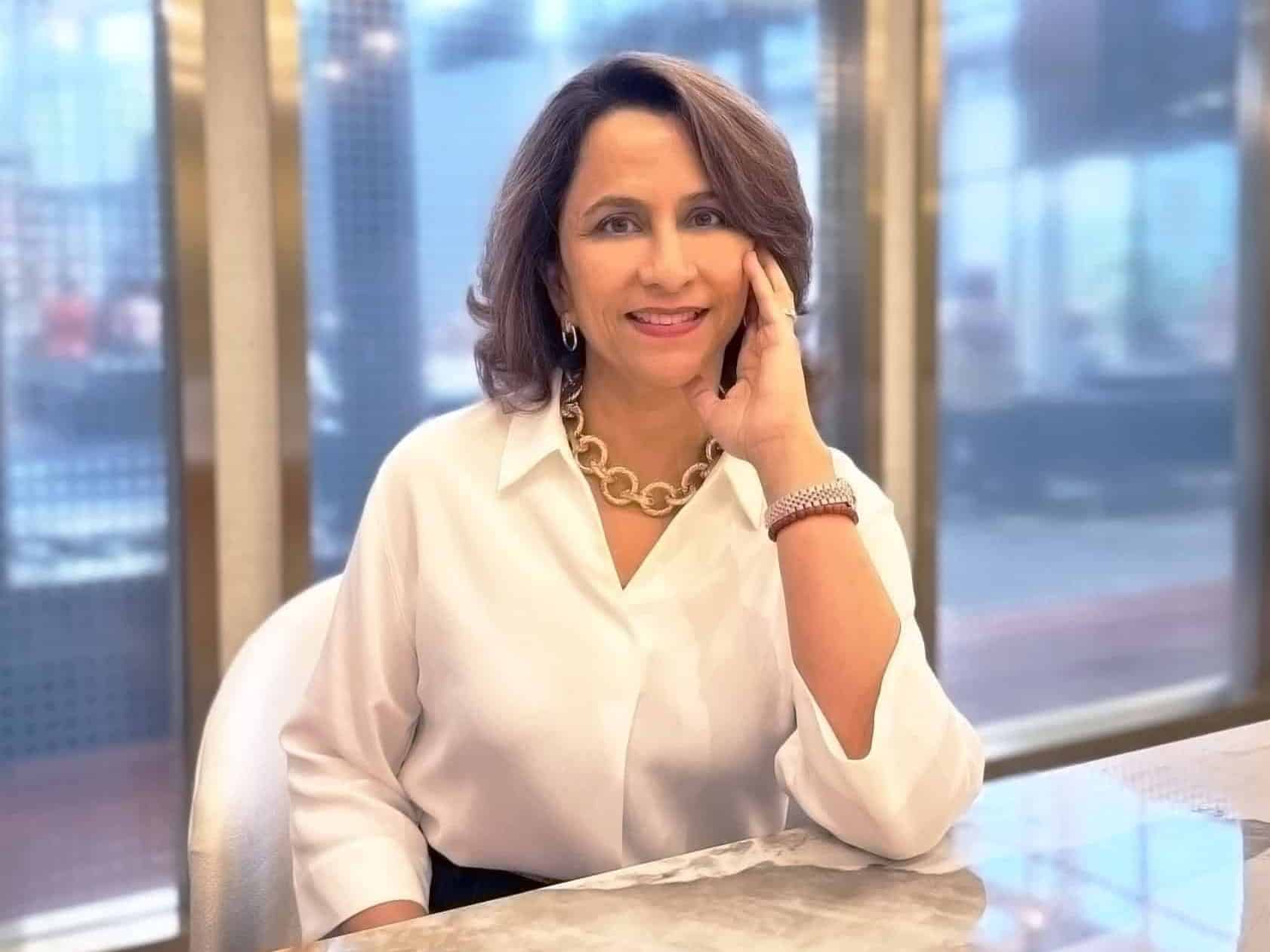
After a breast cancer diagnosis, what immediate, practical steps should a patient take?
Firstly, take some space to let the news sink in. Different people receive a diagnosis of this nature differently, so I always give my patients space to process. I usually recommend patients to come in with a loved one as well, rather than receiving their diagnosis alone.
Once the news has been accepted, I will then speak to them about the management plan, step-by-step. A brief outline of the patient’s background helps with this process, such as understanding what their support system is like, who they are living with, and whether they have children.
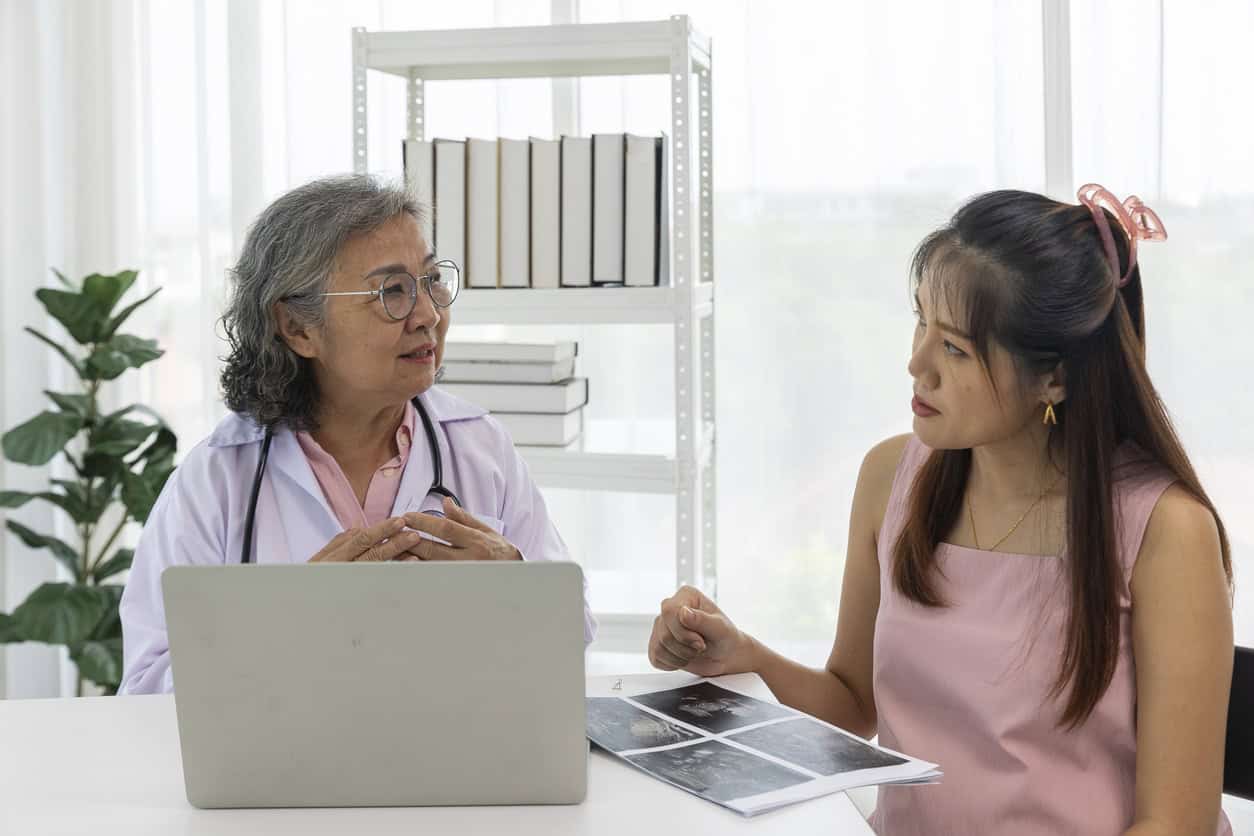
It’s important for patients to ask questions about:
- the type of cancer they have, including the stage that they’re at; and
- what treatment options are available (for example, whether they’re going to require radiation therapy, chemotherapy, hormonal therapy, targeted therapy, or a mastectomy).
Their treatment options depend on how big their tumour is, how big their breast is, what type of tumour they have, and what we feel might be best for them. These are questions patients need to ask to make good, informed decisions for themselves.
It’s also vital to prepare a patient for what is coming, so that they can make all their necessary contingency plans and decide which way they want to go, or how aggressive they want to be with their treatment. After outlining the advised management plan, I always give patients the opportunity to go back, do a little bit of reading if they need to, and let the information sink in before deciding.
How can families support a loved one diagnosed with breast cancer?
It’s crucial to have a very clear conversation with the patient’s spouse or partner as to where we’re heading with the treatment plan, so that the patient doesn’t feel that they have to take on all the burden on their own.
If children are involved, it’s also important to discuss the issue with them, depending on how old they are, with the parents’ consent. Parents should be very clear, so that the children can get involved with the management process. Get them to come with you to the hospital, then have a treat after that or go and have lunch together, so that it becomes a family thing.
You can spend more time with your child and learn more about them during this period of time. Families actually tend to get stronger during this time, provided that all members understand that they’re in it together, and that the patient mustn’t be isolated.

Can breast cancer be prevented?
I think the one statement that’s very important to know is that you can’t prevent breast cancer. Your goal actually is to achieve early detection. Honestly, we still don’t know what causes breast cancer, or who gets it and why, unless you’ve got a genetic mutation running in your family. In those situations, you need to be on high risk follow-ups and high risk screenings, which means a six monthly breast assessment with an ultrasound check.
Overall, it’s lifestyle choices – being healthy, sleeping well, eating well, exercising, and minimising the use of electronics. The key is awareness, so do your screening, which is so important from the time you’re 25. Start doing your breast ultrasounds and once you’re 40, your mammograms. Know your risk factors and keep doing your breast self-exams as well.
What’s the most important message to remember about navigating a breast cancer diagnosis?
The key thing is to know that you’re never alone in this. Don’t be afraid of asking for help, whether it’s from your clinician, your friends, or your family. There are a lot of good treatments out there, so just make sure that you are comfortable with your clinician. Ask questions or get a second opinion, if you need to.
Advice for Caregivers
Eunice Chan shares about the important role that families play in a patient’s treatment and recovery journey, as well as the avenues of support offered by NCSM.

How can families and caregivers provide meaningful physical and emotional support to a loved one with breast cancer?
Breast cancer can often lead to self-consciousness about physical changes. Open communication and creating a safe space for emotional ups and downs are essential. Simple yet meaningful acts – such as active listening, respecting your loved one’s autonomy and treatment choices, and maintaining closeness through gentle gestures like hugs, holding hands, or a reassuring touch – can provide comfort and strengthen connection.

When communicating, try using “I” statements, rather than “you” statements.
Say: “I want to create space for you to safely share your feelings with me."
Don't say: “You don’t share how you feel with me.”
Focusing on the present (rather than dwelling on past patterns or hurts) and letting your loved one know that you want to be included in their care are other meaningful ways of showing support.
What are some of the less-talked-about challenges faced by caregivers and children, and how can they be addressed?
These challenges are often around shifting family roles. A spouse who is accustomed to being the primary provider may suddenly find themselves balancing multiple responsibilities, such as managing household tasks, supporting children emotionally, and providing care for their partner. For children, feelings of confusion, frustration, or even anger may arise as they adjust to spending less time with their parents coping with treatment side effects.
These challenges can be eased through open and honest communication with all family members about the nature of the illness, its effects, and the need to redefine family goals and expectations in the present.
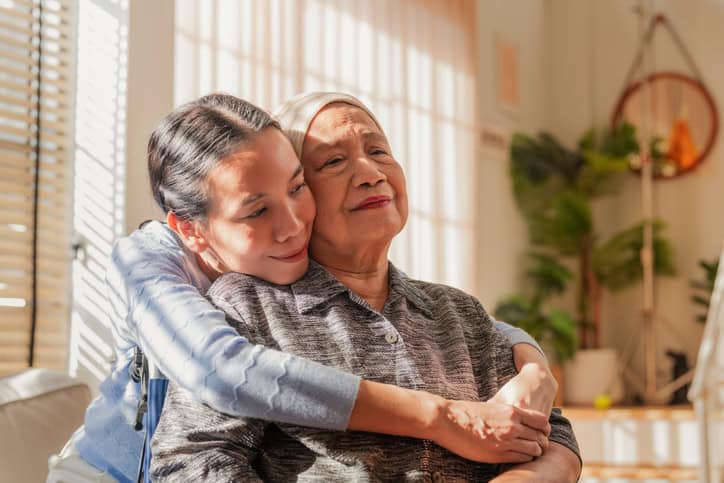
How does NCSM play a role in helping caregivers and patients through this journey?
When a loved one, especially an elderly one, is diagnosed with cancer, caregivers often feel overwhelmed. It helps to know that you don’t have to shoulder everything alone.
NCSM has a Cancer Information Service (CIS) Helpline (1800-88-1000) that connects caregivers and patients with trusted information and resources for guidance along the cancer journey. When further support is needed, CIS can guide you to a wide range of services, including Guided Patient Support, psychosocial support such as counselling and psychotherapy, dietary support, support group networks – and much more.
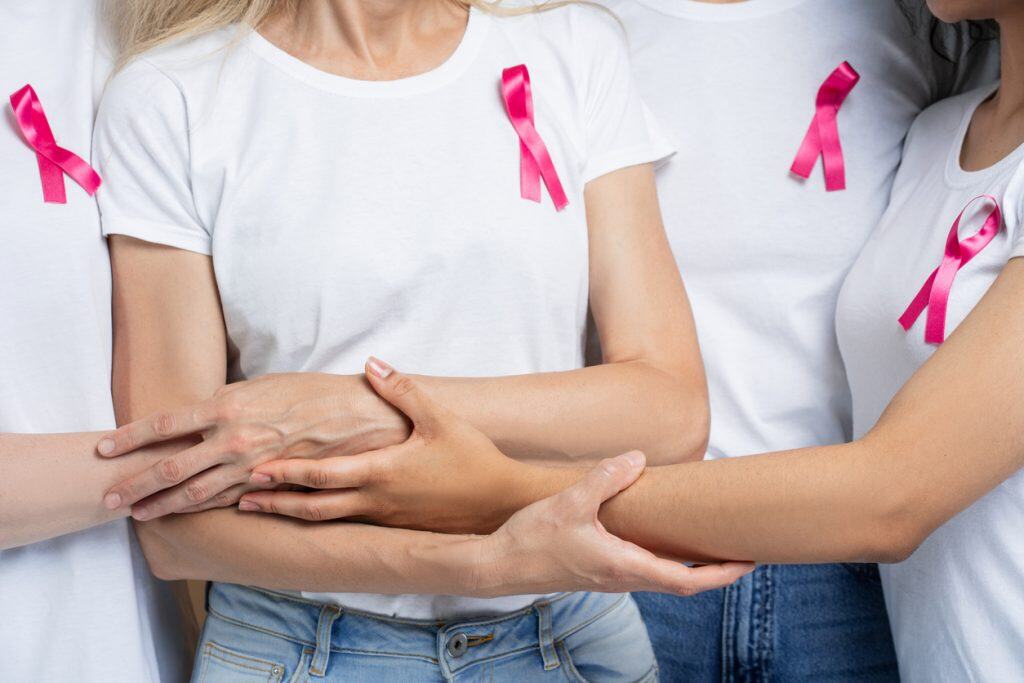
How can the wider community, such as schools, friends and extended family, offer practical and emotional support to a family navigating this journey?
The wider community can make a big difference for families going through cancer.
Schools: Be sensitive in how you communicate with the child or their sibling in the school environment, while respecting the family’s wishes for privacy.
Friends and extended family: Step in with practical help - such as preparing meals, helping with school transportation runs, or simply making sure the children feel supported and included during the absence of a parental figure who is navigating their cancer treatment.
Emotional support: Don't push your loved one to share more than they’re ready to; instead, gently show that you’re present and willing to walk alongside them. Often, it’s those consistent check-ins and small acts of care that mean the most.
Interview by Kimberly Lee and Nuril Syed Junaidi
[The contents of this interview have been edited for brevity and clarity]







